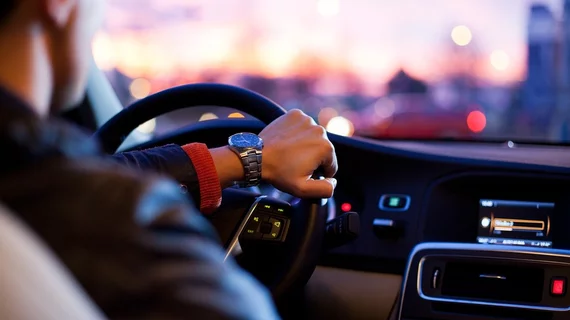Ride-sharing pilot program significantly improves on-time arrivals for MR imaging appointments
Utilizing a ride-sharing service to transport patients to MRI appointments has helped one academic medical center “significantly” improve on-time arrivals.
The pilot program was particularly popular among the elderly, unemployed and those with government insurance, experts wrote Monday in JACR. But the intervention did not appear to make a measurable impact on magnetic resonance imaging no-shows.
Lead author Debra Whorms, MD, and colleagues believe the pilot has proven beneficial in bolstering MRI access for vulnerable populations while also freeing up care equipment.
“…Increased patient punctuality may improve workflow and efficiency of the imaging site, with a potential downstream effect of increasing availability of MRI, which is a resource with limited availability,” wrote Whorms, a radiology resident with Penn Medicine who studied at Harvard Medical School, and colleagues.
The team tested the ride-sharing program—using a Boston-based service “Circulation”—at a single Massachusetts General-affiliated outpatient imaging center for nine months starting in June 2018. Patients were offered a free ride through the program when they expressed a desire to cancel or reschedule their appointment during a reminder call. Researchers made rides available seven days a week during all of the center’s operating hours.
Out of more than 7,700 patients with MRI appointments during the study period, 151 (or almost 2%) used the service. Comparing that time span up against the previous nine months prior to the pilot, Whorms et al. found a notable increase in timeliness. On average, patients who used ride-sharing checked in about 54.8 minutes before their scheduled appointment time. That’s compared to about 43.4 minutes early for those who did not use the service during the pilot, and 42.4 before the experiment. Patients who asked for transportation assistance traveled about 4.7 miles on average at a cost of $17.92.
Meanwhile, about 27.9% of appointments were canceled beforehand, compared to 29% afterward, which the team deemed as “not statistically significant.”
“Future studies could focus on expanding the service to other sites and imaging modalities, developing better ways to identify patients with transportation barriers who are more likely to benefit from a rideshare program, and evaluating the program on a larger scale,” the research team concluded.
Read more on their findings in the Journal of the American College of Radiology here.

